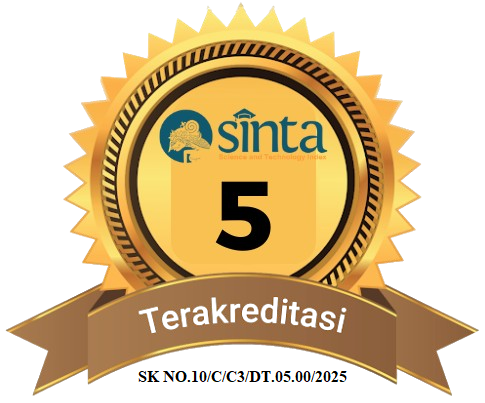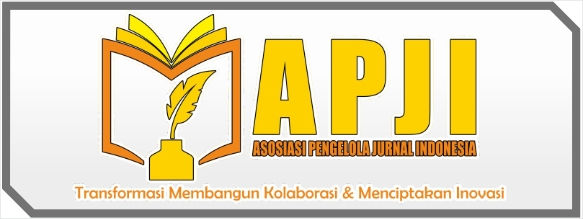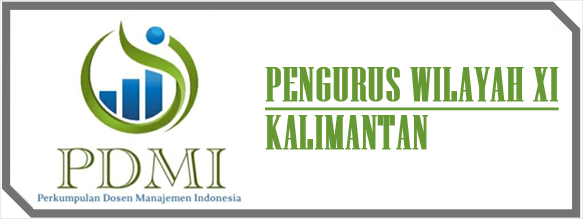ASSESSING THE RELATIONSHIP BETWEEN TRANSFORMATIONAL LEADERSHIP AND EMPLOYEE PERFORMANCE IN THE HEALTH DEPARTMENT OF EAST JAKARTA
DOI:
https://doi.org/10.62394/projmb.v2i2.62Keywords:
transformational leadership, employee performance, health departmentAbstract
This research focuses on exploration of the impact of transformational leadership on employee performance, with the aim of gaining a deeper understanding of this relationship. The hypothesis tested in this study states that transformational leadership style has a significant influence on employee performance. leadership style has a significant influence on employee performance. In collecting data, This study involved 156 respondents as a representative sample of the population. The data analysis method used is inferential analysis, allowing the researchers to draw broader conclusions from this limited sample. The results of the study revealed that there is a positive and significant influence between transformational and employee performance. This means that a leadership style that focuses on developing individual potential, motivating, and creating a shared vision have a real impact on employee performance. a real impact on employee performance. The conclusion of this study contributes to our understanding of the importance of transformational leadership in the context of work environment. The practical implications of this research can serve as a basis for organizations to develop and improve their leadership practices to improve overall employee performance.
Downloads
References
Alshehhi, S., Abuelhassan, A. E., & Bhaumik, A. (2019). The influence of transformational leadership on employees’ performances through organizational commitment within public sectors in United Arab Emirates (UAE). International Journal of Innovative Technology and Exploring Engineering, 8, 527–540.
Amalina, N. N., & Susilowati, C. (2022). The effect of transformational leadership and organizational justice toward employee performance mediated by job satisfaction: A study of Blitar, Indonesia police. International Journal of Research in Business and Social Science (2147-4478), 11(4), 95–105.
As’ad, M. (1995). Seri Ilmu Manajemen Sumber Daya Manusia [Psikologi Industri]. Alumni.
Balthazard, P. A., Waldman, D. A., & Warren, J. E. (2009). Predictors of the emergence of transformational leadership in virtual decision teams. The Leadership Quarterly, 20(5), 651–663.
Bass, B. M., & Riggio, R. E. (2010). The transformational model of leadership. Leading Organizations: Perspectives for a New Era, 2(1), 76–86.
Chen, L. Y. (2004). Examining the effect of organization culture and leadership behaviors on organizational commitment, job satisfaction, and job performance at small and middle-sized firms of Taiwan.
Day, D. V. (2011). Leadership development. The SAGE Handbook of Leadership, 22, 37–50.
Dionne, S. D., Yammarino, F. J., Atwater, L. E., & Spangler, W. D. (2004). Transformational leadership and team performance. Journal of Organizational Change Management, 17(2), 177–193.
Eisenbach, R., Watson, K., & Pillai, R. (1999). Transformational leadership in the context of organizational change. Journal of Organizational Change Management, 12(2), 80–89.
Gil, F., Rico, R., Alcover, C. M., & Barrasa, A. (2005). Change‐oriented leadership, satisfaction and performance in work groups: Effects of team climate and group potency. Journal of Managerial Psychology, 20(3/4), 312–328.
Hasan, K. K. (2023). The Influence of Transformational Leadership and Work Motivation on Employee Performance: Pengaruh Kepemimpinan Transformasional dan Motivasi Kerja terhadap Kinerja Karyawan. MULTIPLE: Journal of Global and Multidisciplinary, 1(1), 39–48.
Homrig, M. A. (2001). Transformational leadership. Retrieved December, 5, 2008.
Igbaekemen, G. O. (2014). Impact of leadership style on organisation performance: A strategic literature review. Public Policy and Administration Research, 4(9), 126–135.
Jung, D. I., Chow, C., & Wu, A. (2003). The role of transformational leadership in enhancing organizational innovation: Hypotheses and some preliminary findings. The Leadership Quarterly, 14(4–5), 525–544.
Jung, D. I., & Sosik, J. J. (2002). Transformational leadership in work groups: The role of empowerment, cohesiveness, and collective-efficacy on perceived group performance. Small Group Research, 33(3), 313–336.
Kehoe, R. R., & Wright, P. M. (2013). The impact of high-performance human resource practices on employees’ attitudes and behaviors. Journal of Management, 39(2), 366–391.
Khamaidi, K., Ardiana, I. D. K. R., & Ridwan, M. S. (2022). Transformational Leadership, Employment Competency and Career Levels As Predictors Of Job Satisfaction and Employee Performance: An Empirical Study. Media Mahardhika, 20(3), 415–427.
Lievens, F., Van Hoye, G., & Schreurs, B. (2005). Examining the relationship between employer knowledge dimensions and organizational attractiveness: An application in a military context. Journal of Occupational and Organizational Psychology, 78(4), 553–572.
Lievens Pascal Van Geit Pol Coetsier, F. (1997). Identification of transformational leadership qualities: An examination of potential biases. European Journal of Work and Organizational Psychology, 6(4), 415–430.
Marianti, N. P. S. (2007). Pengaruh Kepemimpinan Terhadap Disiplin dan Kinerja Dosen Universitas Warmadewa Denpasar. Tesis. Udayana: Magister Manajemen.
Mendez, F., Maier, D. E., Mason, L. J., & Woloshuk, C. P. (2003). Penetration of ozone into columns of stored grains and effects on chemical composition and processing performance. Journal of Stored Products Research, 39(1), 33–44.
Metwally, A. H., El-Bishbishy, N., & Nawar, Y. S. (2014). The impact of transformational leadership style on employee satisfaction. The Business & Management Review, 5(3), 32–42.
Obi, O. C. (2018). Influence of Leader Communication on Employee Motivation. Walden University.
Oskar Hutagaluh, Andi Rustam, Suwandi S. Sangadji, Ilfan Baharuddin, & Ardhariksa Zukhruf Kurniullah. (2020). Responsive Leadership in Preventing Transmission of Covid-19 in the Indonesia-Malaysia Border Area. Journal of Advanced Research in Dynamical and Control Systems, 12(02), 3274–3279. https://doi.org/10.5373/JARDCS/V12I2/S20201449
Patiar, A., & Mia, L. (2009). Transformational leadership style, market competition and departmental performance: Evidence from luxury hotels in Australia. International Journal of Hospitality Management, 28(2), 254–262.
Pearson, A., Laschinger, H., Porritt, K., Jordan, Z., Tucker, D., & Long, L. (2007). Comprehensive systematic review of evidence on developing and sustaining nursing leadership that fosters a healthy work environment in healthcare. International Journal of Evidence‐Based Healthcare, 5(2), 208–253.
Pogo, T. (2022). Pengaruh Kepuasan Kerja, Gaya Kepemimpinan, dan Komitmen Organisasional terhadap Turnover Intention Karyawan PT. Deporindo Telekomunikasi. PROCURATIO: Jurnal Manajemen & Bisnis, 1(1), 54–66.
Sangadji, Suwandi S., Febriyani E. Supriatin, Iin Marliana, Afkar, Andi Paerah, and Firdaus Y. Dharta. 2022. “ METODOLOGI PENELITIAN.” OSF Preprints. July 5.osf.io/ywemh
Saad, Z. M., Sudin, S., & Shamsuddin, N. (2018). The influence of leadership style, personality attributes and employee communication on employee engagement. Global Business and Management Research, 10(3), 743.
Sangadji, S. S. (2023). Management research methods. PROCURATIO: Jurnal Manajemen & Bisnis, 2(1), 43-44.
Sidik, R., Pogo, T., & Nugroho, R. E. (2022). Pengaruh Motivasi Intrinsik dan Motivasi Ekstrinsik terhadap Kinerja Karyawan PT. Bawana Margatama. PROCURATIO: Jurnal Manajemen & Bisnis, 1(1), 27–42.
Simanjuntak, M., Kato, I., Sudarnice, S., Butarbutar, M., Sherly, S., Purba, S., Parinduri, L., Purba, B., Purnomo, Y. J., & Ismail, M. (2021). Manajemen SDM. Yayasan Kita Menulis.
Stashevsky, S., & Koslowsky, M. (2006). Leadership team cohesiveness and team performance. International Journal of Manpower, 27(1), 63–74.
Steers, R. M., Mowday, R. T., & Shapiro, D. L. (2004). The future of work motivation theory. In Academy of Management review (Vol. 29, Issue 3, pp. 379–387). Academy of Management Briarcliff Manor, NY 10510.
Stogdill, R. M. (1950). Leadership, membership and organization. Psychological Bulletin, 47(1), 1.
Sudiarta. (2007). Beberapa Variabel yang Mempengaruhi Kinerja Karyawan pada PDAM Denpasar. Universitas Udayana.
Tamer, G. (2021). The role of ethical leadership in increasing employees’ organizational commitment and performance: the case of healthcare professionals. Journal of Life Economics, 8(1), 133–146.
Utin, N. H., & Yosepha, S. Y. (2019). The model of employee performance. International Review of Management and Marketing, 9(3), 69.
Vadeveloo, T., Ngah, N. S., & Jusoff, K. (2009). The effectiveness of leadership behavior among academician of Universiti Teknologi MARA Terengganu. Management Science and Engineering, 3(3), 1.
Von Cranach, M. (1986). Leadership as a function of group action. In Changing conceptions of leadership (pp. 115–134). Springer.
Yanto, Y., & Aulia, I. N. (2021). The effect of transformational leadership and organizational culture on work motivation and employee performance. International Journal of Innovative Science and Research Technology, 6(4), 197–209.
Youseff, L., Wolski, R., Gorda, B., & Krintz, C. (2006). Evaluating the performance impact of Xen on MPI and process execution for HPC systems. First International Workshop on Virtualization Technology in Distributed Computing (VTDC 2006), 1.




















